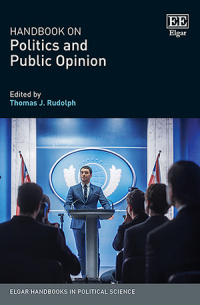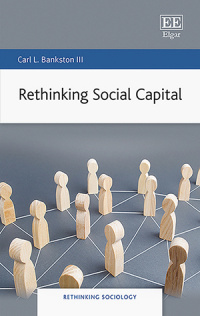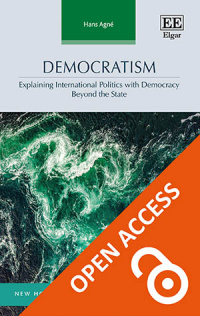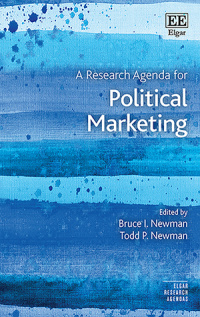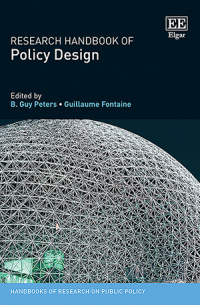Hardback
Handbook on Politics and Public Opinion
Examining the nature of public opinion in democratic societies, this Handbook succinctly illustrates the importance of public opinion as an instrument of popular control and democratic accountability. Expert contributors in the field provide a thorough review of a variety of theoretical and methodological approaches to the study of this timely topic.
More Information
Critical Acclaim
Contributors
More Information
Examining the nature of public opinion in democratic societies, this Handbook succinctly illustrates the importance of public opinion as an instrument of popular control and democratic accountability. Expert contributors in the field provide a thorough review of a variety of theoretical and methodological approaches to the study of this timely topic.
The concise but comprehensive chapters investigate the theoretical value of biological, contextual, psychological, sociological and economic perspectives when exploring public opinion. The Handbook also demonstrates useful insights that can be generated from quantitative or qualitative research designs from both an observational and experimental perspective. Furthermore, its informative assessment of the origins and structure of how public opinion is formed allows for a greater understanding of how policies are developed as a result.
Providing a state-of-the-art review, this Handbook will be an excellent study resource for scholars of public opinion in political science, sociology and psychology. Political practitioners, particularly government officials, political operatives and pollsters will also find this informative and illuminating.
The concise but comprehensive chapters investigate the theoretical value of biological, contextual, psychological, sociological and economic perspectives when exploring public opinion. The Handbook also demonstrates useful insights that can be generated from quantitative or qualitative research designs from both an observational and experimental perspective. Furthermore, its informative assessment of the origins and structure of how public opinion is formed allows for a greater understanding of how policies are developed as a result.
Providing a state-of-the-art review, this Handbook will be an excellent study resource for scholars of public opinion in political science, sociology and psychology. Political practitioners, particularly government officials, political operatives and pollsters will also find this informative and illuminating.
Critical Acclaim
‘In the face of widespread polarisation, democracies in retreat, and crises of global proportions, a need has arisen to explore the individual and societal causes, interactions, and implications of these profound developments. This impressively comprehensive Handbook addresses this challenging task by focusing on the central role of public opinion, leaving hardly any question unanswered.’
– Sonja Zmerli, Sciences Po Grenoble, France
‘Two things make this volume entirely irresistible. The first is the line-up of quite prominent, well-versed, and insightful scholars contributing chapters, and the second is the breadth and depth of public opinion topics covered. I started reading this book by ticking off in the table of contents the chapters I wanted to read closely. I was then amazed to find that I had selected nearly all the chapters. This Handbook will prove invaluable for students of public opinion, including undergraduates, graduate students, and the professoriate.’
– James Gibson, Washington University in St. Louis, US
– Sonja Zmerli, Sciences Po Grenoble, France
‘Two things make this volume entirely irresistible. The first is the line-up of quite prominent, well-versed, and insightful scholars contributing chapters, and the second is the breadth and depth of public opinion topics covered. I started reading this book by ticking off in the table of contents the chapters I wanted to read closely. I was then amazed to find that I had selected nearly all the chapters. This Handbook will prove invaluable for students of public opinion, including undergraduates, graduate students, and the professoriate.’
– James Gibson, Washington University in St. Louis, US
Contributors
Contributors include: Bethany Albertson, Susan Banducci, Brandon L. Bartels, Cheryl Boudreau, Ross Buchanan, Katherine J. Cramer, Megan Dias, Paul A. Djupe, James N. Druckman, James G. Gimpel, Spencer Goidel, Paul Goren, Peter Gries, Eric Groenendyk, Marc J. Hetherington, D. Sunshine Hillygus, Allyson L. Holbrook, Marc Hooghe, Laszlo Horvath, Francisco Jasso, Nathan P. Kalmoe, Paul M. Kellstedt, Samara Klar, Ekaterina Kolpinskaya, James H. Kuklinski, Tina LaChapelle, Jeremy Levy, Morris Levy, Levente Littvay, Mary-Kate Lizotte, Benjamin Miller, Joanne M. Miller, Jeffery J. Mondak, Mark Peffley, Efrén O. Pérez, Davin L. Phoenix, Andrew Reeves, Megan L. Remmel, Robert Rohrschneider, Thomas J. Rudolph, Marco Steenbergen, Daniel Stevens, Bianca V. Vicuña, Ianne S. Wang, Tao Wang, Benjamin T. White, Christopher Wlezien, Jennifer Wolak, Matthew Wright, Gergő Závecz

